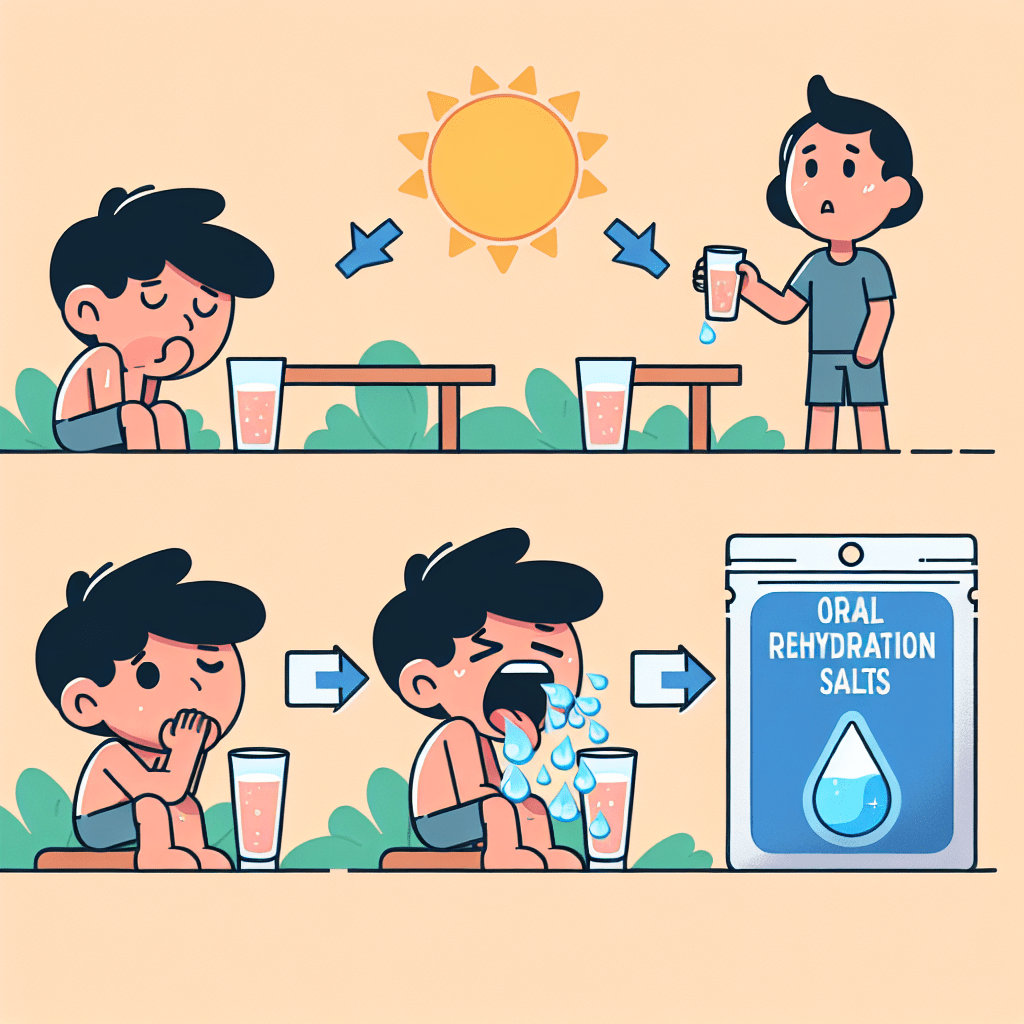Should i user oral rehydration salts

Should I Use Oral Rehydration Salts?
Oral rehydration salts (ORS) have become a staple in managing dehydration, especially in cases of diarrhea, vomiting, or excessive sweating. This article delves into the benefits, uses, and considerations of ORS, helping you make an informed decision about whether they are right for you.
What Are Oral Rehydration Salts?
Oral rehydration salts are a mixture of electrolytes and sugars designed to quickly replenish fluids and essential minerals lost during dehydration. The World Health Organization (WHO) has endorsed ORS as a simple, cost-effective, and life-saving treatment for dehydration caused by diarrhea and other conditions.
How Do Oral Rehydration Salts Work?
ORS work by utilizing the principle of osmotic balance. The combination of glucose and electrolytes, such as sodium and potassium, facilitates the absorption of water in the intestines. This process helps to quickly restore the body's fluid balance and prevent further dehydration.
"ORS is a cornerstone in the treatment of dehydration." - WHO
When Should You Use Oral Rehydration Salts?
ORS can be particularly beneficial in the following scenarios:
- Diarrhea and Vomiting: Acute gastroenteritis can lead to severe dehydration. ORS can help replenish lost fluids and electrolytes.
- Heat-Related Illnesses: Excessive sweating from heat exposure or strenuous exercise can deplete the body's water and electrolyte levels.
- Travel: ORS can be a handy remedy for travelers experiencing dehydration due to unfamiliar climates or water sources.
"Rehydration salts save lives by preventing dehydration." - Dr. John Smith
Benefits of Oral Rehydration Salts
ORS offer several advantages:
- Rapid Rehydration: The balanced mixture of glucose and electrolytes ensures quick absorption and rehydration.
- Easy to Use: ORS packets are convenient and easy to prepare, requiring only clean water.
- Cost-Effective: ORS are an affordable solution compared to intravenous fluids.
- Safe for All Ages: ORS can be used by children, adults, and the elderly, making it a versatile option.
Scientific Support for ORS
Multiple studies have validated the efficacy of ORS in treating dehydration:
"ORS significantly reduces mortality in children with acute diarrhea." - Journal of Pediatrics
Research has shown that ORS can reduce the need for hospitalization and intravenous fluids, making it a practical first-line treatment for dehydration.
How to Use Oral Rehydration Salts
Using ORS is straightforward:
- Dissolve the contents of one ORS packet in the recommended amount of clean water (usually 200-500 ml).
- Stir until the salts are completely dissolved.
- Drink the solution in small sips over a period of time.
It's crucial to follow the instructions on the packet to ensure the correct concentration and effectiveness of the solution.
Considerations and Precautions
While ORS are generally safe, there are a few considerations to keep in mind:
- Quality of Water: Ensure that the water used to prepare ORS is clean and safe to drink.
- Underlying Conditions: Individuals with kidney disease or heart conditions should consult a healthcare provider before using ORS.
- Severe Dehydration: In cases of severe dehydration, medical attention may be required, and ORS should not replace professional treatment.
Conclusion
Oral rehydration salts are a proven, effective, and accessible solution for managing dehydration. Whether due to illness, heat, or travel, ORS can help restore the body's fluid balance quickly and safely. As Dr. John Smith aptly noted, "Rehydration salts save lives by preventing dehydration."
In summary, ORS are a valuable tool in maintaining hydration and preventing the complications of dehydration. Their ease of



